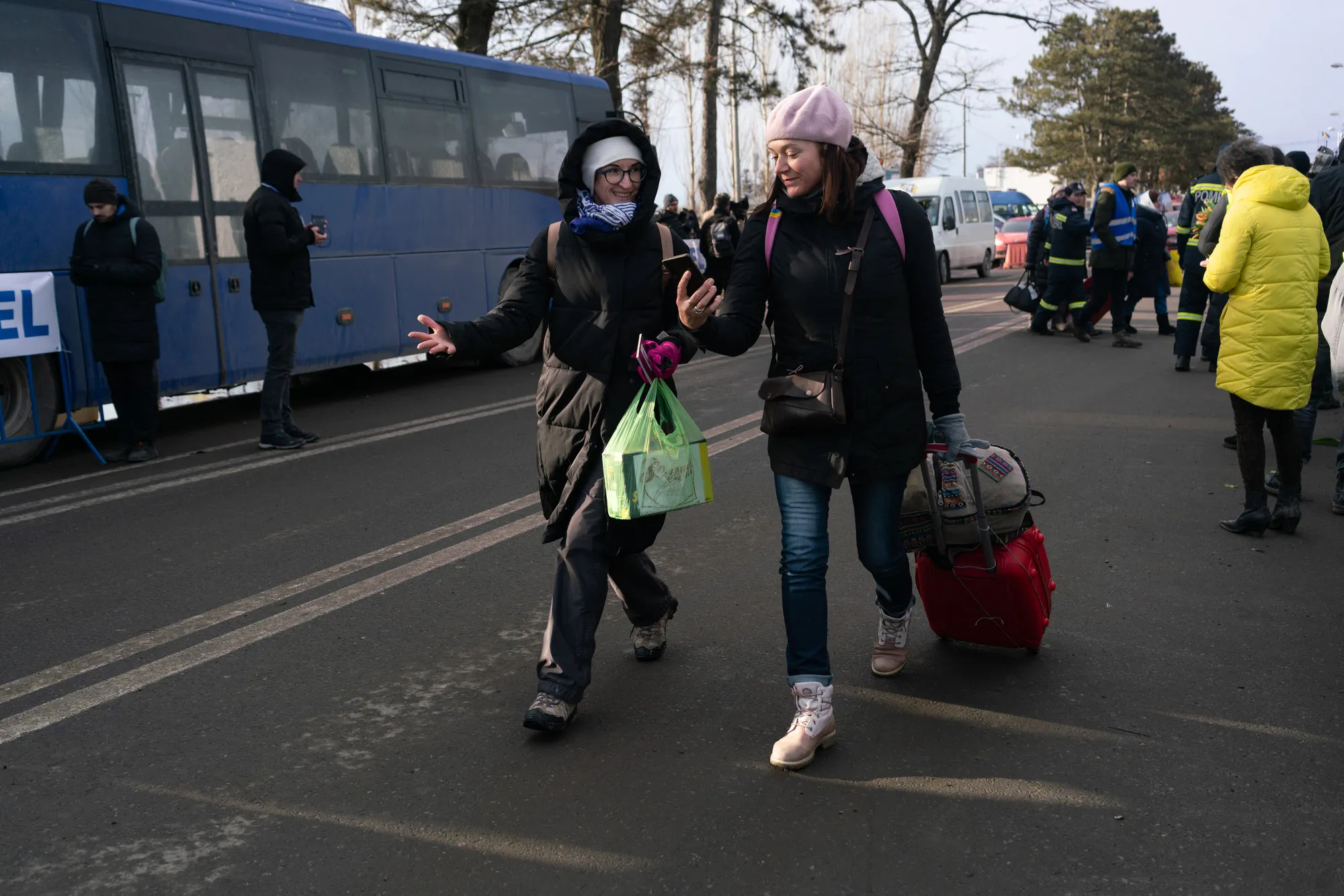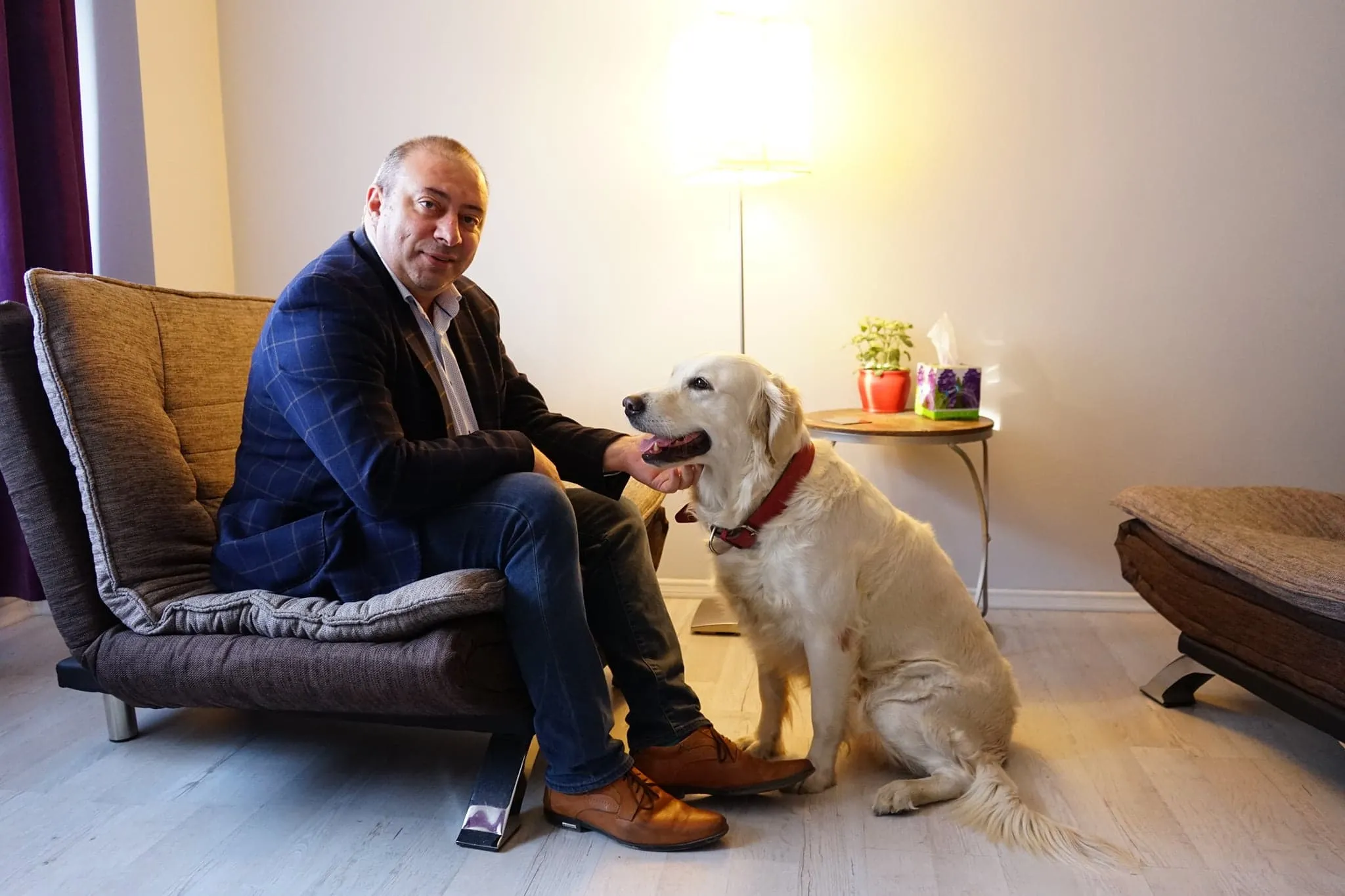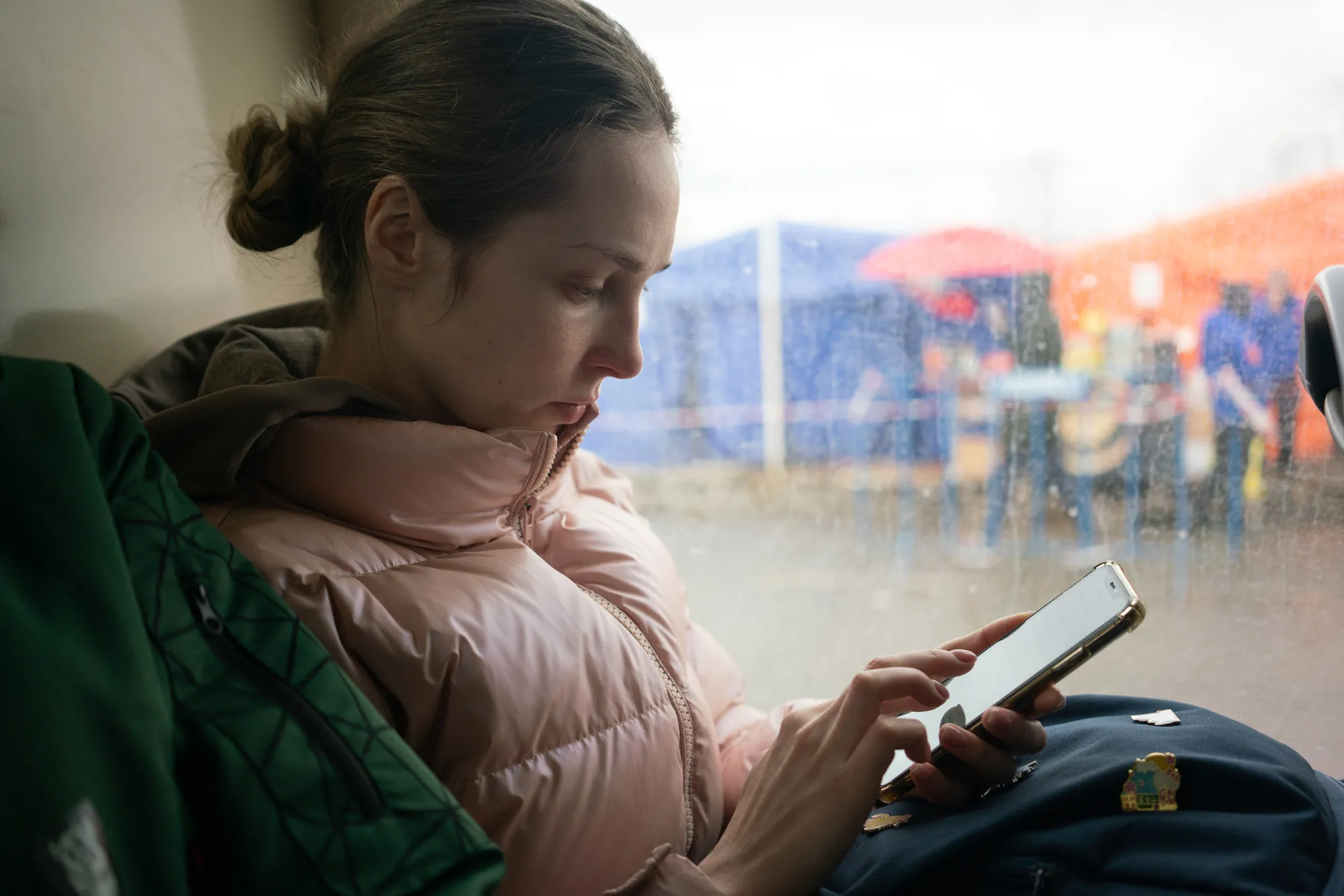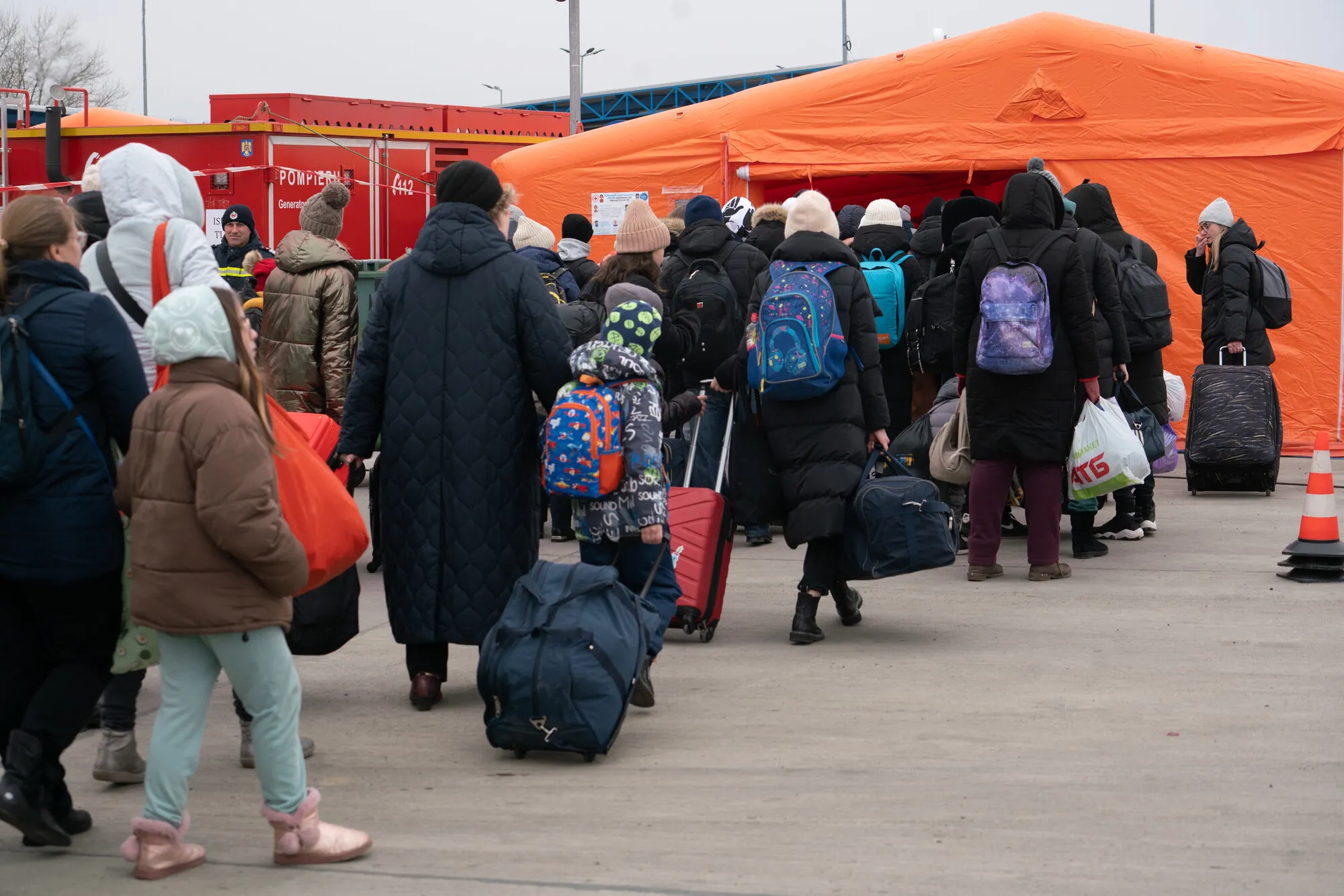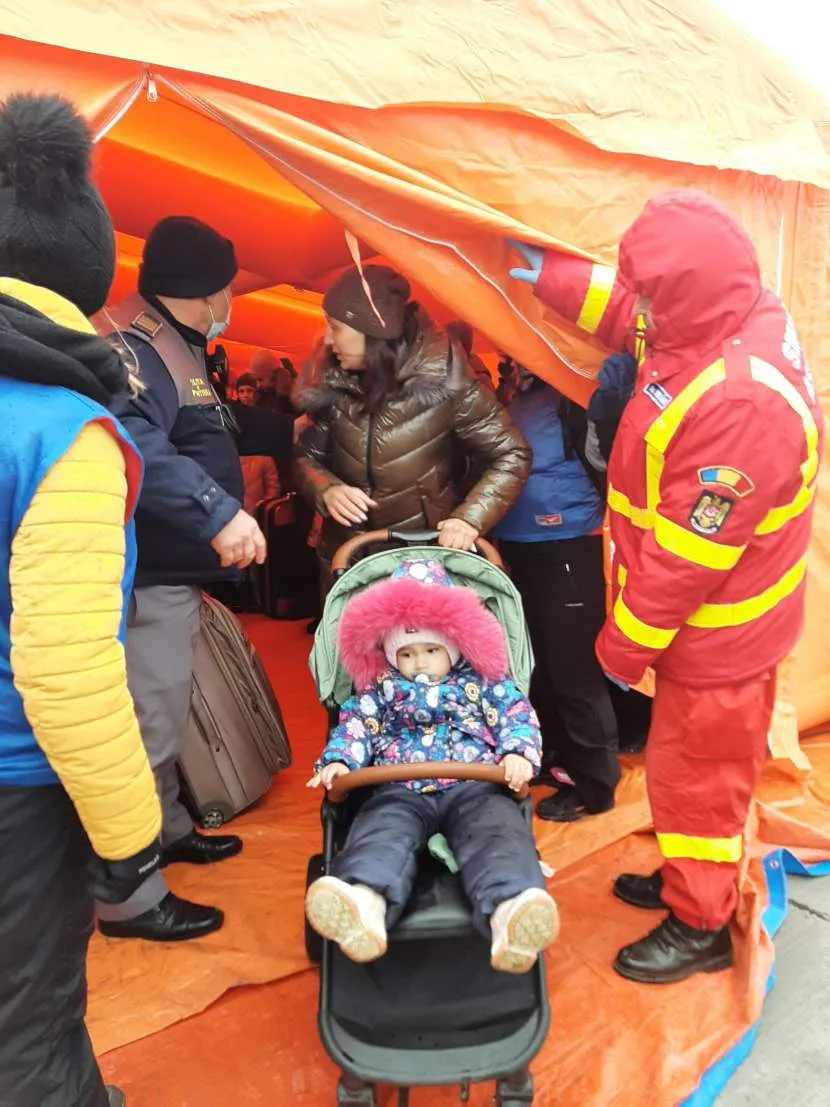Protecting children at all costs
“One thing that really impressed me, and will stay in my mind from working with these refugees, was the effort of mothers to shield their children from their own grief and worry. I saw one mother, who, in front of her children, was smiling and trying to be happy. Then she went off to talk on the phone and she broke down in tears. But when she came back she would be composed again. She made such an effort to keep the pressure to herself and not to transfer it to her child.
“In Romania we are not used to emergencies like the current one, so it is really helpful to learn from people who work in these situations a lot. Even if we learnt it in our studies, this is the first time we are seeing it happen in real life. What I liked a lot about the training was the way the trainers dealt with questions. I saw in practice how they handle questions and concerns themselves.
“One thing I learned that was such a basic thing but so useful, was to take a tennis ball with me.
It is something small, but you can use it for a lot of therapeutic purposes and it can change the perspective.
“I would like to use the training to teach these skills to others – other organizations and specialists – but also medical staff and volunteers working with Ukrainian refugees. The interventions of a doctor of a nurse are not just medical acts, but also psychological acts, and they are really some of the frontline providers of this first emergency psychological aid.
“It is also really important to provide this training to translators working with the refugees. If they do not understand the intention of your questions they can sometimes not translate the question properly, and in therapy and counseling the language you use is so important. If they know the basic principles, then the way that they ask the question is more secure and less harmful.”

